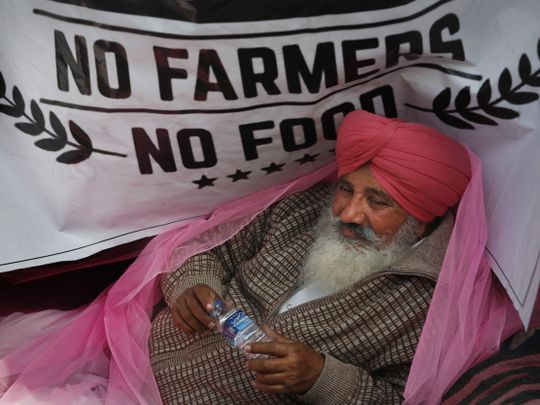
New Delhi: India’s Supreme Court offered on Wednesday to set up a mediation panel to end a three-week protest by tens of thousands of farmers who are demanding the repeal of new agricultural reform laws that they say will drive down crop prices and devastate their earnings.
The court sent notices to the government and the farmers’ representatives across the country seeking their views on the proposal and set Thursday for a possible decision.
The farmers have been blocking half a dozen major highways on the outskirts of New Delhi for three weeks and say they won’t leave until the government quashes what they call the “black laws” passed by Parliament in September.
Chief Justice S.A. Bobde and Justices A.S. Bopanna and V. Ramasubramanian made the offer to set up the panel after five rounds of talks between the government and farmers failed to end the impasse.
“Your negotiations with protesting farmers have not worked apparently until now,” the Press Trust of India news agency cited the judges as telling government Solicitor-General Tushar Mehta.
Apart from blocking the movement of people, the massive protest has dealt a blow to manufacturing and business in northern India.
The farmers say the laws will lead to the cartelisation and commercialisation of agriculture and make farmers vulnerable to corporate greed.
Protest leaders have rejected the government’s offer to amend some contentious provisions of the laws.
The farmers fear the government will stop buying grain at minimum guaranteed prices and corporations will then push prices down. The government says it is willing to pledge that guaranteed prices will continue.
Nearly 60 per cent of the Indian population depends on agriculture for their livelihoods.
Prime Minister Narendra Modi’s government insists the reforms will benefit farmers. It says they will allow farmers to market their produce and boost production through private investment.
On Friday, a farmers’ group filed a petition with the Supreme Court seeking the repeal of the three laws. The Bharatiya Kisan Union, or Indian Farmers’ Union, argued that the laws were arbitrary because they were enacted without proper consultations with stakeholders.








